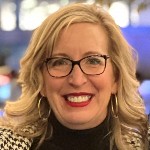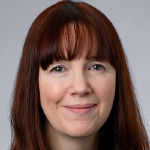- SixCap Healthcare Finance Launches Integrated Healthcare Capital Platform Combining Asset-Based Lending and Real Estate
- The Power of Mentorship: A Conversation with Frank Grimaldi
- Interview With SFNet’s Supply Chain Finance Convergence '26 Keynote, Financial Times' Robert Smith
- Appointing Independent Directors to Distressed Companies: An Alternative to Bankruptcy
- Gordon Brothers Bolsters Investment Committee with Janet Jarrett Appointment
Interview with Melissa Mok, Director of Asset-Based Lending Originations, Truist Securities
By Michele Ocejo

Melissa Mok joined Truist Securities in 2014. Located in Texas, she is responsible for ABL originations of mid- and large-cap companies and is currently focused on the Financial Services, Energy and Industrial Services. TMT and TME industry verticals.
Since joining Truist in 2014, Ms. Mok has originated and syndicated ABL facilities nationally across numerous industry verticals including Industrials (building products, steel, transportation, business and industrial services, etc.), Consumer, Energy, Financial Services and TMT.
Ms. Mok serves as the point person for many of the ABL institutional relationships, builds strong relationships with both clients, internal Investment and Corporate Banking partners as well as with cross-sell banking partners within Truist. Ms. Mok received Truist’s Performance Award in both 2020 and 2022.
Prior to joining Truist, Ms. Mok was Vice President / Senior Account Executive with Wells Fargo Capital Finance’s Lender Finance division from 2002 to 2014. During that time, Ms. Mok was promoted three times and received Wells Fargo’s Golden Spoke Award for outstanding achievement in 2008.
Prior to Wells Fargo, Ms. Mok spent four years with Bank of America Business Credit’s ABL group (formerly Fleet Capital).
In addition to her banking experience, Ms. Mok spent six years working for Deloitte & Touche’s Audit group lastly as an Audit Manager.
Ms. Mok graduated with her BBA from The University of Tulsa.
Please tell us about your career trajectory.
I worked in public accounting prior to transitioning into asset-based lending. Throughout my career, I have been fortunate to touch all aspects of ABL from field exam, underwriting, portfolio management, workouts, and originations. Since joining Truist in 2014, I’ve originated and/or syndicated asset-based lending facilities across numerous industry verticals, including industrials, consumer, energy, financial services, and technology, media and telecommunications. Some of the most interesting times of my career were workouts through the financial crisis and gaining industry specialization as well as a broader capital markets knowledge via working with the investment bank.
What is the biggest challenge you are facing this year in your role and what are your plans to overcome it?
Following a year of record volume in 2022, banks are demonstrating a more measured approach to capital deployment with lending decisions driven by a heighted focus on client relationship, credit profile, and overall returns. We will continue to make solid credit decisions, structure appropriately for the risk profile, and be good stewards of the bank’s capital while supporting our client and sponsor relationships though these challenging economic times.
What role has mentorship played in your career and what tips would you offer to anyone interested in mentoring younger team members?
I’ve been fortunate to benefit from many great mentors in my career and have learned from varying management and leadership styles; these relationships have transformed my career. My most influential mentors acted as “career champions” through promoting my accomplishments to executive leadership, nominating me for committees and leadership roles and, most importantly, providing direct feedback driving continued growth. While these relationships developed organically, both formal and informal programs were beneficial. I would recommend everyone identify a team member or two and act as their “career champion.”
You’re a member of Truist’s DE&I Council. What steps do you think the industry as a whole could take to increase diversity?
We need to continue to work on recruiting and retaining new and diverse talent into asset-based lending.
The theme of SFNet’s Women in Secured Finance Conference this year is Navigating Economic, Professional and Personal Change. Could you tell us about how you have handled a significant professional change?
I took a position as an originator early in my career and quickly realized I needed a deeper structuring skill set than I had at the time. Though feeling a bit defeated, I then took a lateral position and further developed my skill set. Years later, I decided I was ready to pursue the originations path again and took an originations support role at Truist and worked my way up to my current position as director. Sidesteps or steps back in your career are just ways to establish new paths forward.



.jpg?sfvrsn=f1093d2a_0)
